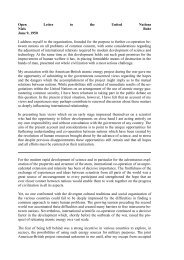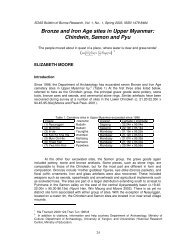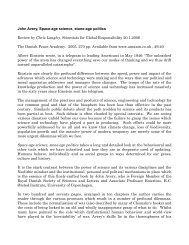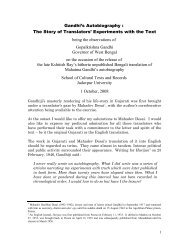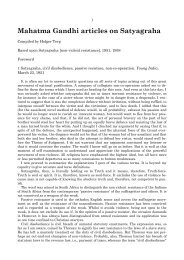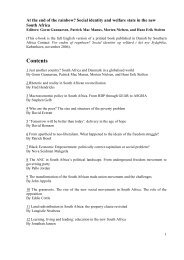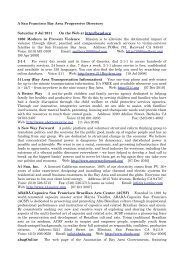THE SLAVERY OF OUR TIMES PREFACE / INTRODUCTION
THE SLAVERY OF OUR TIMES PREFACE / INTRODUCTION
THE SLAVERY OF OUR TIMES PREFACE / INTRODUCTION
You also want an ePaper? Increase the reach of your titles
YUMPU automatically turns print PDFs into web optimized ePapers that Google loves.
the lack of land-may be done away with. With reference to taxes (besides the singletax<br />
plan) we may imagine the abolition of taxes, or that they should be transferred<br />
from the poor to the rich, as is being done now in some countries; but under the<br />
present economic organization one cannot even imagine a position of things under<br />
which more and more luxurious, and often harmful, habits of life should not, little by<br />
little, pass to those of the lower classes who are in contact with the rich as inevitably<br />
as water sinks into dry ground, and that those habits should not become so necessary<br />
to the workers that in order to be able to satisfy them they will be ready to sell their<br />
freedom.<br />
So that this third condition, though it is a voluntary one-that is, it would seem that a<br />
man might resist the temptation-and though science does not acknowledge it to be a<br />
cause of the miserable condition of the workers, is the firmest and most irremovable<br />
cause of slavery.<br />
Workmen living near rich people always are infected with new requirements, and<br />
obtain means to satisfy these requirements only to the extent to which they devote<br />
their most intense labor to this satisfaction. So that workmen in England and<br />
America, receiving sometimes ten times as much as is necessary for subsistence,<br />
continue to be just such slaves as they were before.<br />
Three causes, as the workmen themselves explain, produce the slavery in which they<br />
live; and the history of their enslavement and the facts of their position confirm the<br />
correctness of this explanation.<br />
All the workers are brought to their present state and are kept in it by these three<br />
causes. These causes, acting on people from different sides, are such that none can<br />
escape from their enslavement. The agriculturalist who has no land, or who has not<br />
enough, will always be obliged to go into perpetual or temporary slavery to the<br />
landowner, in order to have the possibility of feeding himself from the land. Should he<br />
in one way or other obtain land enough to be able to feed himself from it by his own<br />
labor, such taxes, direct and indirect, are demanded from him that in order to pay<br />
them he has again to go into slavery.<br />
If to escape from slavery on the land he ceases to cultivate land, and, living on some<br />
one else's land, begins to occupy himself with a handicraft, or to exchange his produce<br />
for the things he needs, then, on the one hand, taxes, and on the other hand, the<br />
competition of capitalists producing similar articles to those he makes, but with better<br />
implements of production, compel him to go into temporary or perpetual slavery to a<br />
capitalist. If working for a capitalist he might set up free relations with him, and not<br />
be obliged to sell his liberty, yet the new requirements which he assimilates deprive<br />
him of any such possibility. So that one way or another the laborer is always in slavery<br />
to those who control the taxes, the land, and the articles necessary to satisfy his<br />
requirements.<br />
CHAPTER X.<br />
LAWS CONCERNING TAXES, LAND AND PROPERTY<br />
The German Socialists have termed the combination of conditions which put the





